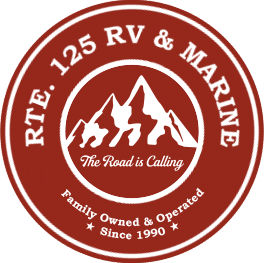RV Fridge Maintenance
You’ve probably already got a long list of maintenance concerns to deal with when it comes to your RV, but we want to throw one more in there: your fridge. The fridge is often something we take for granted and assume will keep working and running the way it should, but like all appliances, it does need some maintenance and it may break down every once in a while, so you’ll want to give it some attention.
Preparing your Fridge for Travel
Before every trip, you’ll want to take the time to make sure your fridge is ready for the long haul and that you won’t run into any problems on the road. Complete a thorough inspection and look for possible areas of concern and damage. This should include plugging it in to make sure it runs correctly. If it’s not cooling off the way it’s supposed to or if you notice a strange noise, it may be a sign that there’s a bigger issue and you may want to visit a technician.
It’s also a good idea to let your fridge pre-cool for about eight to ten hours before putting food in it. This way, the cooling happens faster and there’s no temperature fluctuation with your perishables.
Post-Trip Defrost
Once you return home, you may not have plans to take your camper out again for some time and may want to power everything down. Once you cut the power to your fridge, it’ll start to warm up again (like any fridge) and you’ll want to prepare to defrost it. This really just means that everything has been removed and the doors are open to let more warm air in.
After that, it’s just a waiting game. Keep in mind that there’s going to be some water runoff, so you’ll want towels around the unit to collect all the moisture and prevent water damage to your floor.
Safety Tips
Some RV owners prefer to fix their appliances themselves if possible. If you’re going to repair your fridge, there are some safety basics you’ll want to keep in mind. Remove all flammable products from your general vicinity.
If you need to access the roof (to get to the vent), make sure you’ve got a spotter on the ground looking out for you. If you’re using your own ladder, rather than a ladder that may be attached to the trailer, check to make sure it’s secure and won’t wobble or fall. And, of course, always consult your owner’s manual before attempting repairs.
Whether you work on your fridge or hire a professional when needed, there’s another safety concern that you’ll need to know about. If you start to smell ammonia, it’s a sign there’s a leak somewhere and you’ll want to take immediate action. This is because not only can a leak mean water damage to your RV, but ammonia is hazardous to people.
Start by turning off the fridge, opening its doors, and then opening all doors and windows. If it’s severe enough, step outside the rig to get some fresh air. Then find the nearest technician to help you solve the problem so you can get back on the road safely.
With just a little bit of attention and inspection, your fridge shouldn’t give you any problems while you’re out enjoying your camping trip, which makes for one less stressor. Remember: if you ever need assistance with RV maintenance, you can always get in touch with the Rte. 125 RV & Marine service department to schedule your appointment with our professional mechanics.
When you’re ready to check out new and used RVs for sale in New Hampshire, visit our dealership in Rochester to see what we’ve got in stock. Rte. 125 RV & Marine is proud to serve our New England customers in the states of Massachusetts and Maine.
